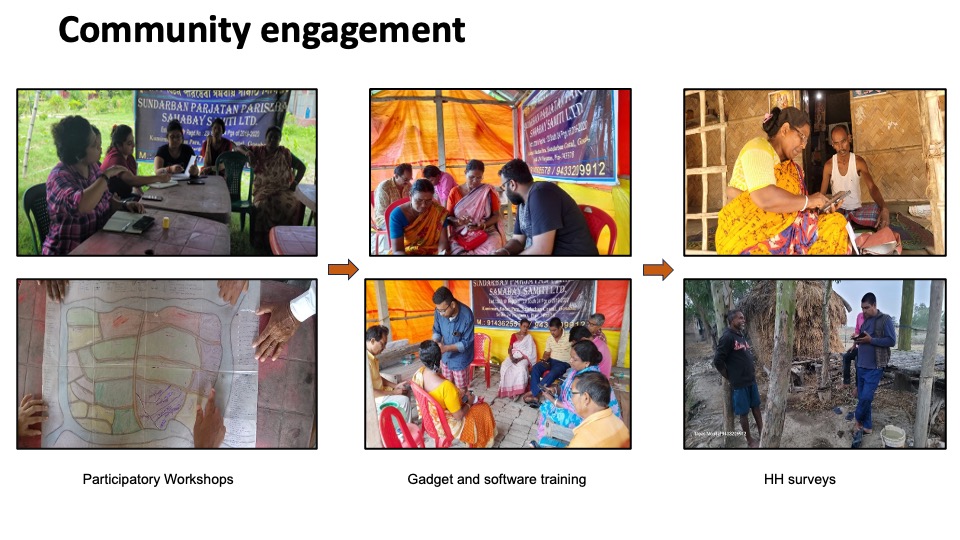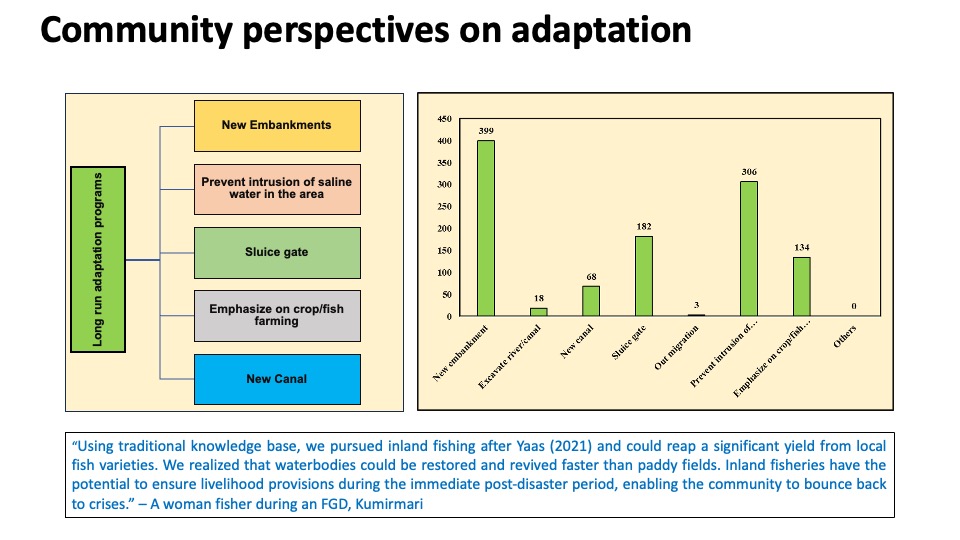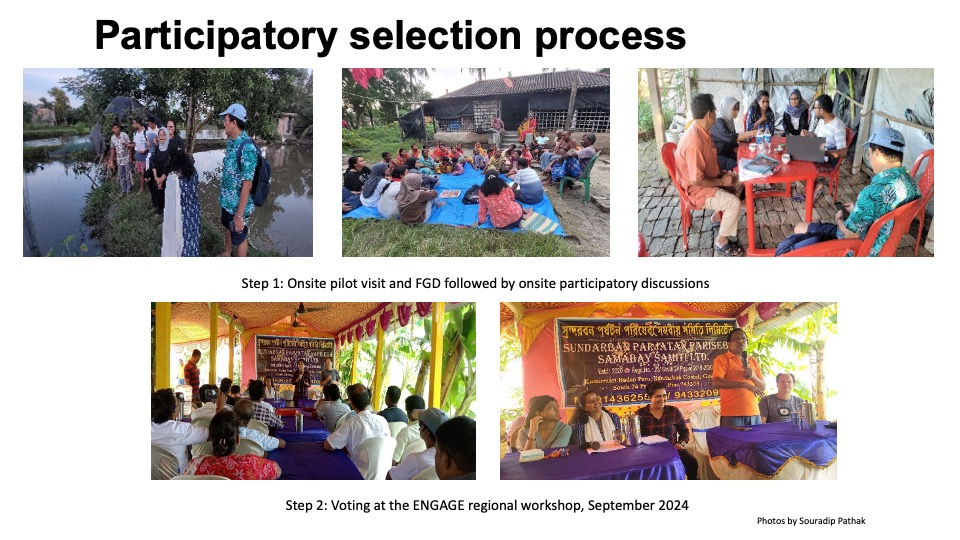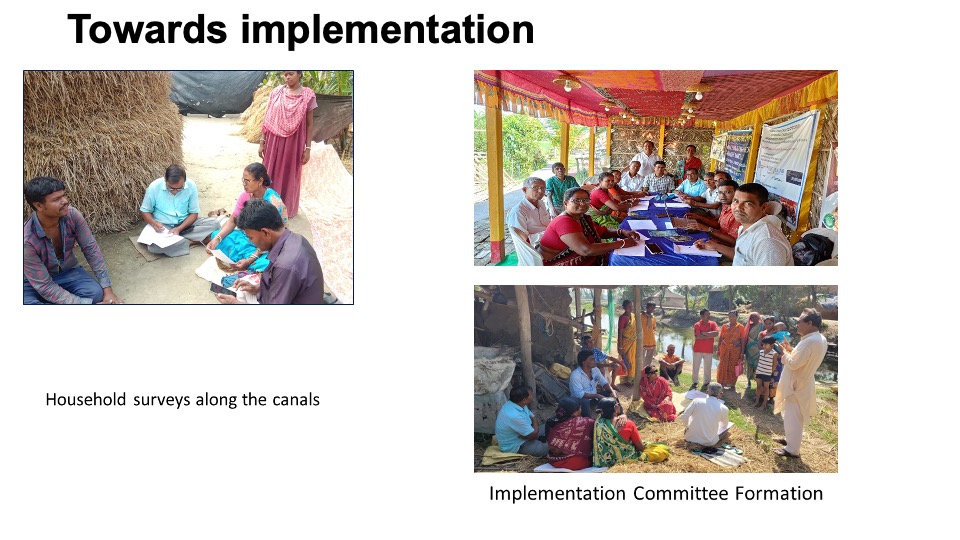In both sites, the ENGAGE methodological approach involved communities in selecting the initiatives that would benefit them and withstand multiple social and ecological vulnerabilities.
In Kumirmari, India, the local inhabitants selected the development of fisheries through concerted planning and actions. Therefore, the project first trained experiments around ponds for 3 years. The research team made an inclusive effort to verify and inform the best practices and principles laid out in the locally contingent and coproduced outputs by systematic transdisciplinary experimentation in ponds at the NGO (PRSJSM) premise in Kumir Mari, involving local fishers, including women.
The experimentation initiative has been complemented with ancillary activities (research outputs), facilitating and up-scaling skillsets and entrepreneurial abilities of local communities including women.
Through these initiatives, we critique the ‘same size fits all’ disaster management and modelling and assert that a ‘social resilience’ framework accommodating inputs from local communities can unleash possibilities for forged and fostered sustained solution strategies for dealing with climate risks and ‘dwelling’ in the delta.


Community members identified the construction of a “New embankment” and “sluice gates to prevent intrusion of saline water” as priorities. However, we could provide the support the government needed to manage. Therefore, we proposed to emphasise crop and fish production in the canals, as we could support this.


